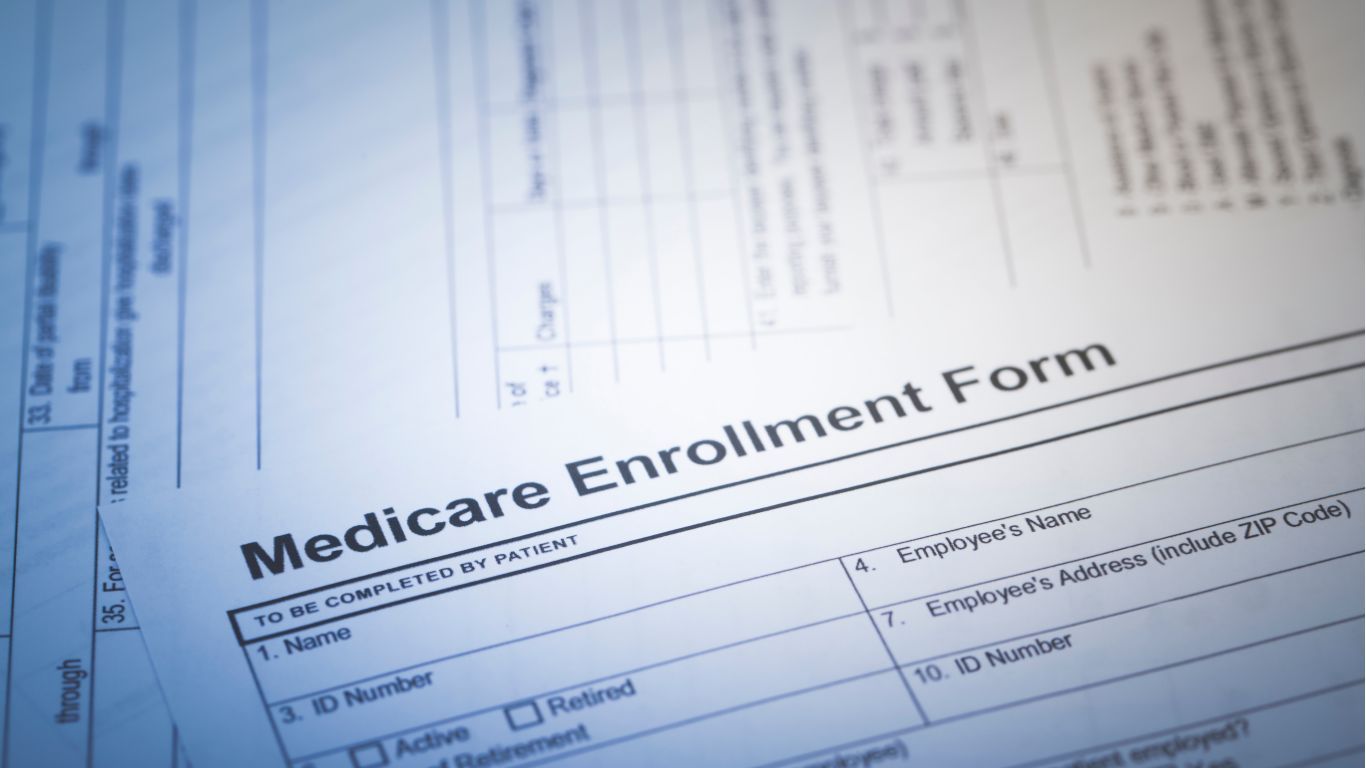Who Qualifies for Medicare?
Understanding Eligibility with MediHealth Options

Medicare plays a critical role in providing health coverage for millions of Americans — yet many people remain unsure about who qualifies, how eligibility works, and when to start the process. Whether you're nearing age 65, living with a disability, or supporting a loved one through this transition, it’s important to understand what qualifies someone for Medicare and what your options are once you become eligible.
At MediHealth Options, we help clients cut through the confusion and find Medicare plans that match their specific needs. This article will walk you through all of the key eligibility scenarios for Medicare and explain how you can make informed decisions once you qualify.
What Is Medicare and Why Does Eligibility Matter?
Medicare is a federal health insurance program primarily for people aged 65 and older, but it also covers certain younger individuals with qualifying disabilities or medical conditions. While the program is managed by the Centers for Medicare & Medicaid Services (CMS), choosing the right plan and understanding your eligibility requires more than just a quick glance at a government website.
There are different types of Medicare plans — including Original Medicare (Part A and Part B), Medicare Advantage (Part C), Medicare Supplement (Medigap), and Medicare Prescription Drug Plans (Part D). Each plan type covers different services, and eligibility rules may vary depending on your age, health status, income, and other factors.
Before you can select the right Medicare plan, you need to know if — and when — you're eligible. That’s where MediHealth Options can help. We provide one-on-one support to ensure you understand your options and get matched with a plan that meets your personal and financial needs.
Age-Based Medicare Eligibility
The most common path to Medicare eligibility is turning 65. If you’re a U.S. citizen or a legal permanent resident who has lived in the country for at least five years, you likely qualify for Medicare when you reach this milestone age.
Key Points:
- You’re eligible for Medicare Part A (Hospital Insurance) and Part B (Medical Insurance) starting the first day of the month you turn 65.
- If your birthday falls on the first day of the month, your Medicare coverage will start the month before.
- You can apply for Medicare three months before your 65th birthday — this is part of what’s called your Initial Enrollment Period (IEP).
It’s common for people to think they must retire to receive Medicare. This isn’t true. You can still be working and qualify for Medicare at 65. What’s important is understanding whether you need to enroll — especially if you’re covered by an employer plan — and how Medicare may work with your existing coverage.
Click here to talk to us at MediHealth Options about planning your Medicare enrollment and avoiding late penalties.
Disability-Based Medicare Eligibility
You don’t have to be 65 to qualify for Medicare. If you’re under 65 and have been receiving Social Security Disability Insurance (SSDI) for at least 24 months, you automatically qualify for Medicare — regardless of your age.
Here’s how it works:
- After receiving SSDI benefits for two years, Medicare enrollment is automatic.
- You’ll receive both Part A and Part B, unless you choose to decline Part B.
- People with Amyotrophic Lateral Sclerosis (ALS), also known as Lou Gehrig’s disease, qualify for Medicare immediately upon starting SSDI, without a 24-month waiting period.
- Individuals with End-Stage Renal Disease (ESRD) may also qualify based on different timelines and treatment circumstances.
Even if you’re automatically enrolled, understanding what your Medicare plan covers — and whether you should choose a Medicare Advantage plan, Prescription Drug Plan, or Medigap policy — is essential. MediHealth Options helps individuals with disabilities select plans that offer the right balance of coverage and cost.
Medicare Eligibility for Veterans
If you’re a U.S. military veteran, you may already receive healthcare services through the Department of Veterans Affairs (VA). However, many veterans are also eligible for Medicare, and enrolling in it can expand your healthcare options.
Here’s why that matters:
- VA benefits and Medicare don’t overlap. You can use VA services for some needs and Medicare for others.
- Medicare can give you access to non-VA doctors and facilities, especially important if you move or travel frequently.
- Enrolling in Medicare protects you if VA funding changes or if you need care not covered by the VA.
Veterans often assume they don’t need Medicare, but having both programs can be beneficial — and you won’t lose your VA benefits by enrolling. MediHealth Options can help veterans understand how Medicare works alongside VA benefits and recommend plans that offer the best coverage.
Dual Eligibility – Medicare and Medicaid
If you qualify for both Medicare and Medicaid, you’re considered dually eligible. Medicaid is a joint federal and state program that provides health coverage for low-income individuals. When combined with Medicare, it can significantly reduce your healthcare costs.
Benefits of Dual Eligibility:
- Lower out-of-pocket expenses.
- Assistance paying for premiums, deductibles, and prescriptions.
- Access to Special Needs Plans (SNPs) designed specifically for dual-eligible individuals.
Eligibility depends on your income and financial resources, which vary by state. If you think you may qualify for both, MediHealth Options can guide you through the application process and help you choose the right dual plan.
Not Sure If You’re Enrolled in the Right Plan?
Medicare eligibility doesn’t end once you enroll. Your needs can change over time, and so can the plans available in your area. One of the most common concerns we hear at MediHealth Options is:
“I don’t know if I’m in the right Medicare plan.”
This uncertainty is understandable. With dozens of carriers and hundreds of plan combinations — Medicare Advantage, Medigap, Part D — it’s easy to enroll in a plan that may not fully meet your needs.
Some red flags that suggest you might be in the wrong plan:
- You’re paying more out of pocket than expected.
- Your medications aren't fully covered.
- You’ve recently been diagnosed with a new health condition.
- Your doctors no longer accept your current plan.
At MediHealth Options, we review your current coverage at no cost and offer unbiased recommendations on switching to a better fit — whether during Open Enrollment or through a Special Enrollment Period.
Common Misconceptions About Medicare Eligibility
Even those approaching 65 may hold outdated or incorrect beliefs about Medicare eligibility. Here are a few we commonly encounter:
Misconception 1: “You must be retired to enroll in Medicare.”
Reality: You can work full time and still qualify for Medicare at age 65.
Misconception 2: “Medicare is free.”
Reality: While Part A is often premium-free (if you or your spouse paid Medicare taxes), Part B and other parts have monthly premiums and cost-sharing.
Misconception 3: “Only seniors can get Medicare.”
Reality: People under 65 with disabilities or certain medical conditions also qualify.
Misconception 4: “If I have VA benefits, I don’t need Medicare.”
Reality: Medicare can complement VA coverage and offer more provider options.
If you’ve been holding back from exploring Medicare due to any of these myths, it’s time to get clarity. MediHealth Options will walk you through your actual eligibility and rights under Medicare.
How MediHealth Options Can Help
Knowing whether you qualify for Medicare is only the beginning. Choosing the right plan can significantly impact your healthcare access and financial stability. At MediHealth Options, we specialize in guiding people through this process — with no pressure, no sales tactics, and no bias.
Here’s how we support you:
- One-on-one plan reviews tailored to your medical and financial needs.
- Access to multiple insurance carriers so you can compare plans in one place.
- Licensed guidance in NY, PA, CT, NJ, NC, and FL.
- Help with Medicare Advantage, Medicare Supplement, and Prescription Drug Plans.
- Support for Veterans, those with Medicaid, and people with disabilities.
We know the Medicare system can be overwhelming. Our goal is to simplify your decision-making and provide lasting value through honest, client-first service.
Final Thoughts: Do You Qualify for Medicare?
To recap, you may qualify for Medicare if:
- You’re 65 or older and a U.S. citizen or permanent resident.
- You’ve received Social Security Disability benefits for 24 months.
- You have ALS or End-Stage Renal Disease.
- You are a Veteran who also meets Medicare requirements.
- You qualify for both Medicare and Medicaid.
- You're unsure if your current plan is right and want professional, unbiased help.
If any of these apply to you — or if you’re just not sure where to start — MediHealth Options is ready to help. We’ll walk you through your Medicare options and make sure you understand not only when you qualify, but also how to get the coverage that’s right for you.
📞 Ready to Get Help?
Don’t leave something this important to guesswork. Visit MediHealth Options to schedule a free consultation. Whether you’re enrolling for the first time or re-evaluating your current plan, we’re here to make Medicare simple.
Book A Free Consultation!
Best Medicare Plans
Contact Info.
Phone Number:
Email Address:
Our Location:
2570 N Jerusalem Rd Ste C5, North Bellmore, NY 11710












